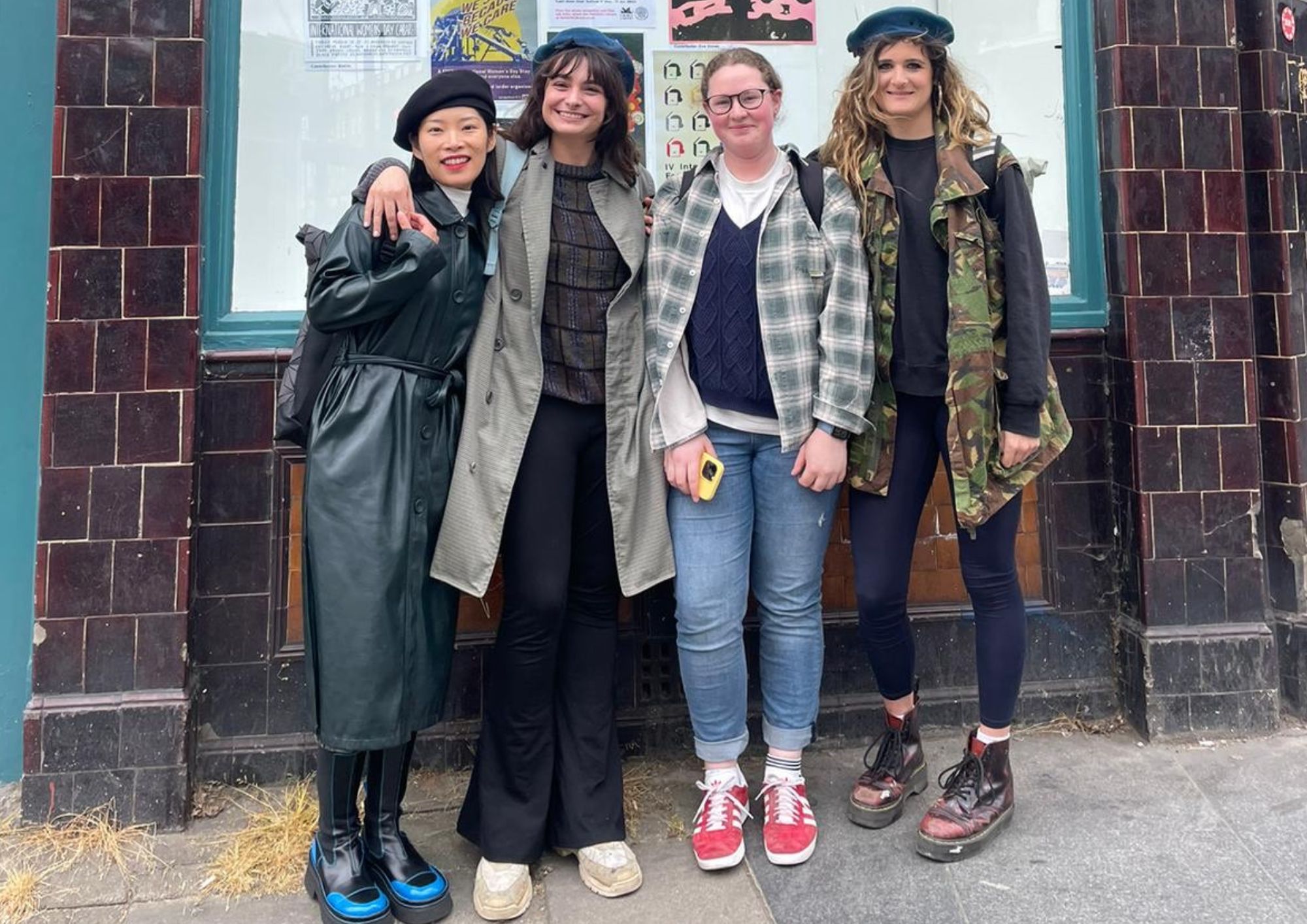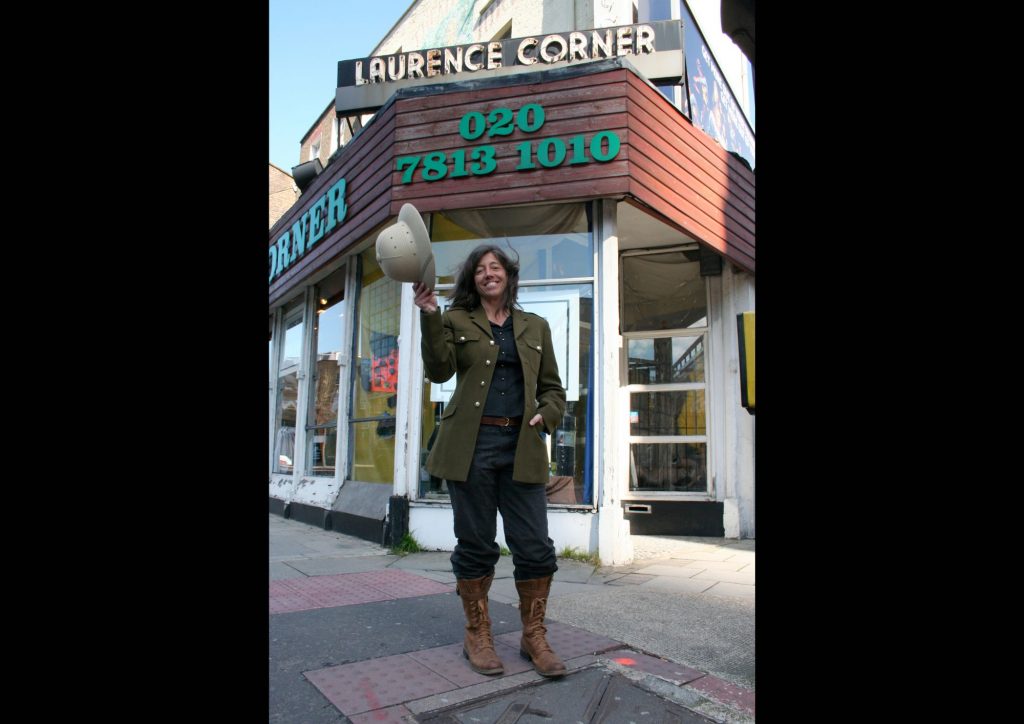History of Laurence Corner army surplus store turned into a play
Shop that inspired Sergeant Pepper outfits subject of a new play
Monday, 12th June 2023 — By Dan Carrier

Militaria cast members Yuwei Jing and Athena Maria with director Reb Emerson and stage manager Louisa Glading
FOR 54 years Laurence Corner clothed thousands of regular customers with army surplus outfits, becoming the go-to shop for both affordable and hard-wearing gear – and something that made the wearer stand out.
Now the history of the shop, whose Drummond Street headquarters closed in 2007, is the subject of a new play that researches its story, customers and the role of women in the military.
Playwright Reb Emerson has written and directed Militaria, showing next week at the Camden People’s Theatre – and to write the piece she has explored the history of the shop whose rows of uniforms were never off-trend.
She said: “I used to come to Camden Town a lot as a teenager and I recalled the army stores. There were a few back then.”
Holding a post-graduate degree in site-specific theatre, and working for the infamous Punch Drunk Theatre Company which produces shows in quirky buildings, her aim was to pen a play that was geographically related to the theatre’s Hampstead Road address.
She said: “I started researching the area around Drummond Street and Laurence Corner kept coming up. It was so well-known that cabbies used it as a reference point for traversing London.”

Kim Eimhor, daughter of Laurence Corner founder Victor Jammily when it closed in 2007
Previously, she set a show in the now-empty former Whittington Hospital site on Highgate Hill, opposite the current institution. Her work reveals how top designers made a beeline for Laurence Corner.
Vivienne Westwood, Jean Paul Gaultier and Katharine Hamnett were all frequent visitors, searching for inspiration. British fashion magazines also noted its influence – it featured regularly in publications such as Vogue.
Customers included The Beatles, who modelled their Sergeant Pepper outfits on styles at the Corner, and swathes of trendy youngsters took inspiration from the three storeys of military styles.
Ms Emerson’s work explores the stories behind the shop’s popularity, drawing on former customers, staff and considering why a piece of clothing seen to be regimented and uniform should have become so loved by numerous counter-cultures.
She said: “Army surplus has a long relationship with rebellious fashion. People protesting against the Vietnam War wore khaki US army shirts, for example.
“The bomber jacket – a flying jacket – has become a staple on the high street. Aviator sunglasses were first developed for the USAF, now they are a fashion statement. Camouflage pants, Burberry trench coats – they all have that same link.”
Added to this, the play also touches on the role of women in the military – something Ms Emerson knows about from personal experience.
She said: “My parents were both in the military – I am what is called an army brat.”
Her mother was in the army and served during the Falklands War, while her father served in the RAF in both Bosnia and Iraq.
She said: “It means military wear has been a constant in my life and I had an immediate connection of the link between army surplus and how it has been adopted by civvy street.” And Laurence Corner was the epicentre of it for more than five decades.
Ms Emerson added: “The shop had a real impact. I’d love to hear people’s stories, memories and photographs of Laurence Corner.”
